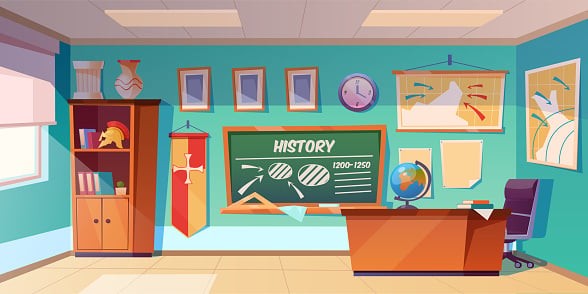The world offers endless learning opportunities, from the complexities of computer science to the nuances of foreign languages. Yet, amidst this vast expanse of knowledge, the study of history holds a unique and invaluable place. Often dismissed as a dry recitation of past events, history, when properly understood, becomes a powerful tool for navigating the present and shaping the future. So, What Can We Learn From History, and why does it matter?
History is not simply a record of what happened; it’s a dynamic narrative that continues to shape our world. Examining the past allows us to understand the origins of current societal structures, cultural norms, and global challenges. By analyzing past triumphs and failures, we gain insights into the complexities of human behavior, the cyclical nature of progress, and the enduring impact of decisions made generations ago. Essentially, history provides a crucial context for understanding our present reality.
Understanding the Present Through the Past
Past events have profoundly shaped the demographics, political systems, and societal tensions we experience today. The Great Depression, for example, while a period of immense hardship, led to the establishment of Social Security, federal relief programs, and unemployment support in the United States. These initiatives, born from a crisis, continue to provide a safety net for millions.
History’s relevance extends beyond specific policy changes. It illuminates broader patterns of societal development, offering valuable lessons about why civilizations rise and fall, the motivations behind conflicts, and the transformative power of social movements. William H. MacNeill, former president of the American Historical Association, aptly described historical knowledge as “carefully and critically constructed collective memory.” This collective memory serves as a roadmap, guiding us toward a deeper understanding of ourselves and our place in the world.
Extracting Wisdom: Lessons from History
History teaches us critical lessons about societal success and failure, the roots of conflict, and the potential for positive change. It underscores the interconnectedness of human experience, demonstrating how past actions reverberate through time and influence our present lives.
- Understanding Societal Trajectories: History reveals why some societies flourish while others crumble. By analyzing past civilizations, we can identify factors that contribute to stability, innovation, and resilience, as well as those that lead to decline and collapse.
- Deciphering the Origins of Conflict: Examining the historical context of wars and conflicts helps us understand the complex interplay of political, economic, and social factors that drive human conflict.
- Recognizing the Power of Change: History showcases how individuals and movements have challenged existing power structures and brought about profound societal transformations. These narratives inspire action and provide frameworks for addressing contemporary challenges.
Applying Historical Thinking: Critical Analysis and Context
The digital age has transformed how we access information, making rote memorization less crucial. The emphasis now lies on critical thinking and contextual understanding.
Analyzing historical events requires examining interconnected factors, drawing reasoned conclusions, and asking probing questions. Studying the fall of Rome, for instance, involves considering the interplay of political instability, military overextension, external pressures, and internal divisions. Developing these critical thinking skills empowers us to engage more effectively with complex issues in our own lives.
Beyond Facts: Finding Relevance in History
The true value of history lies in its ability to inform our understanding of the present and guide our choices for the future. Asking “So what?” after learning about a historical event unlocks its deeper significance.
- Understanding Long-Term Trends: Analyzing historical trajectories helps us identify recurring patterns and anticipate potential future developments.
- Evaluating Counterfactuals: Considering “what if” scenarios allows us to assess the significance of historical turning points and the potential consequences of different choices.
The Enduring Importance of Learning from History
George Santayana’s famous quote, “Those who cannot remember the past are condemned to repeat it,” encapsulates the core message of why studying history is vital. By understanding the past, we equip ourselves with the knowledge and critical thinking skills necessary to navigate the present and build a more informed future. History is not just a subject to be studied; it’s a lens through which to understand the world and our place within it.

